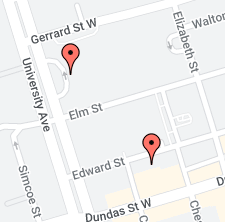Did you know that hearing loss has been linked to dementia? Not as a symptom but as a contributing factor in its onset and severity. Read our blog entry, Hearing Loss: Dementia’s Enabler, to learn about the connection between hearing loss and dementia and what you can do to help slow dementia down.
Hearing Loss: Dementia’s Enabler
The battle against dementia is a frustrating one, for dementia patients and their families. While a cure doesn’t appear forthcoming, evidence shows that hearing loss treatment can help in slowing dementia’s effects.
People with hearing loss use a lot of “cognitive energy” (“brain power,” so to speak) trying to understand and distinguish sounds. Research says that takes energy away from other brain tasks, and that such shifting of focus may overtax the brain,1 opening the door to dementia.
Others have cited increased risk of dementia relative to the severity of hearing loss,2 and the possible combined role untreated hearing loss and social isolation play in cognitive decline.3, 4, 5
Netherlands researchers have determined that rehabilitation therapy and hearing devices may lessen the drain on brain power by making sound more accessible and better enabling social engagement.6
Research into the effect of hearing treatment on dementia is still ongoing, but the significant benefits of hearing-loss screening and management are already well documented and risk-free. There’s no reason not to be proactive about the possibility of lessening the cognitive effects of hearing loss.
Considerable data suggests hearing aids can reduce social isolation, depression, and anxiety that untreated hearing loss can cause.7 Hearing aids have been found to reduce strained listening, which may lessen stress on the brain.
1 Tun PA et al. Psychol. Aging. 2009; 24(3):761–766
2 Lin FR et al. Arch Neurol. 2011; 68(2):214–220
3 Fratiglioni L et al. Lancet Neurol. 2000; 355(9212):1315–1319
4 Barnes L et al. Neurology. 2004; 63(12):2322–2326
5 Bennett DA et al. Lancet Neurol. 2006; 5(5):406–412
6 Sarampalis A et al. J Speech Lang Hear Res. 2009; 52(5):1230–1240
7 Kochkin S et al.; Hearing Review. 2000; 7(1):8-34


